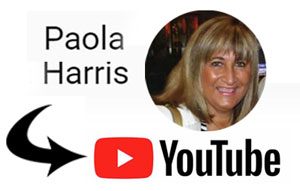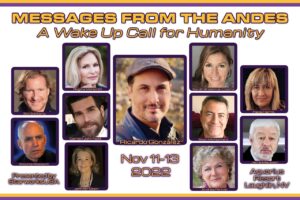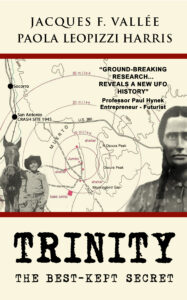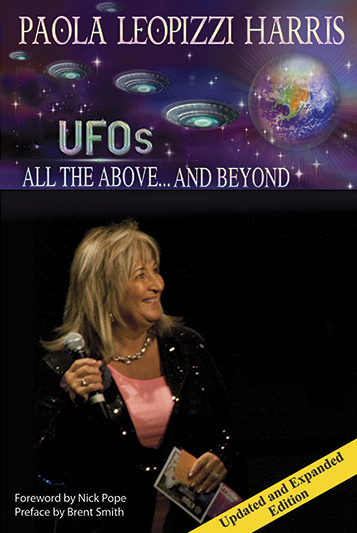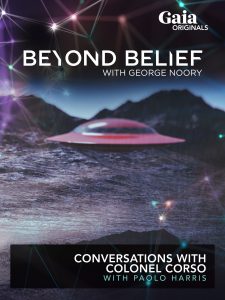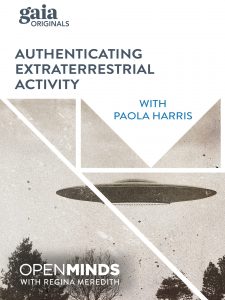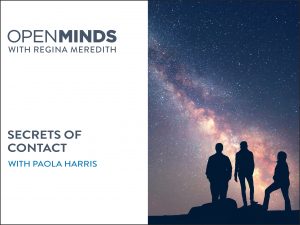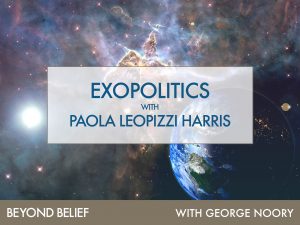Interview with Kathleen Marden, niece of Betty Hill,author of book, with Stanton Friedman called:
Captured
Interview July 2007 by Paola Harris
PH: It is such a privilege to speak to you about your Aunt. She described the aliens that abducted her and Barney in a particular way. They seem to have some kind of orifice that looks like a nose.
KM: Betty and Barney described small, flat noses, not like the large Jimmy Durante noses of the aliens in Betty’s nightmares of abduction.
PH: I thought she said that they had Mongoloid features.
KM: She was talking about Southeast Asian mongoloid.
PH: Which are not those huge big round eyes that take up most of your face.
KM: That’s correct. The leader and the examiner had larger eyes than humans have. But at least one crew member, the supervisor was described as having even larger eyes. Also, the leader and the examiner were taller than the crew. They were 4 1⁄2 to five feet tall, whereas the crew seems to have been much shorter
PH: This is what she saw.
KM: Yes. The supervisor, a member of the crew, was more of the typical stereotypical grey, three and a half feet tall, very large black eyes. But then there was the other group too–the leader and the examiner. The examiner was about four and a half feet tall. Betty wasn’t sure actually whether the examiner was a man or a woman.
PH: Is he the one who put his hand on her head so he wouldn’t feel the pain?
KM: No, it was the leader who did that. And he had smaller eyes than the supervisor. He didn’t have the typical “Grey” eyes. Betty and Barney did describe large eyes. This is New Hampshire artist David Baker painted his interpretation and you have to remember that what David Baker did, is took his knowledge of human anatomy and used human anatomy to do this artistic interpretation of what Betty and Barney described.
PH: Did she ever see them, and say they looked exactly like that?
KM: She did not say that. She actually had these paintings, and she said that the leader and the examiner are more attractive than the little gray. And actually the leader was the most attractive because he looked the most human.
PH: And he was the nicest, because he put his hand on her forehead.
KM: Absolutely. Now this (David Baker’s) is a fairly good interpretation. However, the alien’s pupils were different. Betty described very large irises and a vertical pupil. We have only a little bit of white showing, and that was actually yellowish in color. So this is somewhat different from what was described.
PH: She also must have really had herself together to think about taking the book away. She wanted to prove that it had actually happened.
KM: She wasn’t so freaked out that she wasn’t thinking. She was even thinking and reasoning that she had to do this, and so at that point she had overcome her fear of them. During most of the actual capture and the physical examination, her eyes were closed. She’d open them occasionally to peek. So mostly what she’s talking about were her sensations. It wasn’t until the examiner relieved the intense pain she felt when that needle was inserted into her navel that she began to trust him, and felt that she wasn’t going to be harmed. So when the examiner went to examine Barney, the leader and Betty were left alone in the room, and that’s when he and Betty had their conversation.
PH: And then he wouldn’t let her take the book.
KM: It wasn’t he who denied her the right to take the book. He told her that she should look around and she could take what she wanted. It was actually the supervisor, the little three-and-a-half foot tall grey, who communicated in a humming or mumbling type of language to the rest of the group. She thought it was almost screeching, they were so upset when they saw she had the book, and it was they who made the decision to take the book away from her. The leader apologized to her and said we’re sorry, we’ve decided that it would be best if you don’t remember what happened to you.
PH: She did remember some of the writing that was in the book.
KM: That was only under hypnosis. She didn’t remember the abduction until 1964, when they went to renowned psychiatrist Dr. Benjamin Simon who had built his reputation working with shell shock victims during and after World War II. He was the Chief of Neuro-psychiatry at the Mason General Hospital and had a very high rate of success in treating patients who had what we now call Post-Traumatic Stress Disorder. This is why Betty and Barney were referred to him, because he used hypnosis and he had a special technique that was much more effective than the other psychiatrists who were working with these patients. He used truth serum when he could not take people to a deep enough level of hypnosis. He didn’t use it on the Hills, because they were very good subjects.
PH: Did Betty ever hear or feel the presence of the leader in any other part of her life? Did she ever feel that he was around?
KM: She participated in a number of psychophysics experiments with a team of engineers and scientists and they attempted contact through her. There is a possibility that there was limited success, but they could never get scientific evidence to prove that it happened.
PH: In other words, messages came through, but they were never able to prove that they were from that being.
KM: Yes. UFOs showed up at that location, where she had asked them to show up, and they were observed by scientific teams. Now whether it was a coincidence, or whether it was the result of her messages is the question.
PH: That’s extremely interesting, because in general, with contact cases, they don’t just do it and go away. They usually follow the case. And often in contact cases, the entire family is involved, from way back when. Paola, I believe that these two sentences were stated by you, not me, so I moved them up.
KM: And they did have other close encounters with UFOs. Throughout her lifetime, she insisted that she had never been abducted a second time; however, there is reason to believe that she may have been. There is no scientific evidence that she was. However, I have testimony in Captured! The Betty and Barney UFO Experience from a man who was with Betty in Kingston, NH. One night they were driving from Kingston back to Portsmouth. A UFO hovered over the car. The car lifted up and then came back down in Exeter, NH several miles down the road. Betty was driving the car, I believe, and this man was sitting beside her. They both remembered that, but they don’t remember an abduction, and if Betty had one, she didn’t want to know about it.
PH: Why?
KM: She could never overcome her fear.
PH: Really. She didn’t feel special about being chosen?
KM: No. She never felt that she had actually been chosen. She thought it was an opportunistic abduction, that she happened to be in the wrong place at the wrong time. Or at the right time for the aliens.
PH: The sociological implications of an interracial couple at that time, doing a physical examination, doesn’t that show that they need to be looking at —
KM: Well, I think from a human perspective, perhaps an interracial couple at that time was much more significant to us than it probably is today. In terms of the extraterrestrials, I think they were just looking at people. And Betty never thought that they were attempting to determine the differences between Barney and herself. She thought they were trying to tell the differences between herself and her abductors.
PH: Did she appreciate the conversations she had with these people? It’s very rare for contactees to have conversation, I mean even to calm themselves down enough to ask a question. What did she think of that?
KM: She did, I think throughout her lifetime she felt a special bond with the leader. She even asked him to come back when and if it was possible. She said that she couldn’t answer his questions because she wasn’t educated in science, but she could introduce him at a later time to scientists who could answer his questions. And that was the reason for the psychophysics experiment that she took part in.
PH: And you mentioned the reason why she felt she had bonded with him because he was human-looking.
KM: He was human-looking and because he was nice to her. He took away her pain.
PH: And also he apologized.
KM: He did apologize.
PH: Okay, there’s one incident in the book that I’m very interested in that I will be talking about at my presentation, because it shows she had a kind of compassion or curiosity, and that is the incident with the earrings on the table. Please talk about that incident to me.
KM: I was blown away by that incident. In December of 1961, I believe it was, Betty and Barney made a trip to White Mountain to try to retrace their journey. They were attempting to jog their memory about what had happened during that two hours. They had just had an interview with CD Jackson and Robert Holman. Jackson was a senior engineer for IBM, Holmann was a writer for IBM. Betty and Barney thought they were government scientists. They were not, actually, but the Hills always thought that they were. So anyway, they had that interview. And that’s when they really realized that the period of missing time was a full two hours. And Holmann and Jackson suggested to them, along with Walter Webb, original NICAP investigator, that they go back and retrace their journey to see if it would jog their memory. So they were up there, they spent the day in theWhite Mountains, and when they returned home that evening, they walked into the house and found that it had been entered.
PH: The door was locked.
KM: Yes. And as far as I could determine, no one had a key to that house. They walked in, and right there on their dining room table was a pile of leaves. Withered, brown leaves. They immediately were horrified, they were going around checking the windows and doors to see how someone could get in. They went back and were picking up the leaves to throw them away, and there in the leaves, were the earrings that Betty was wearing on the night of her abduction. That was horrifying to Betty, and to her this was proof. We went to look for them, to jog our memories, and they came to our house and left these earrings that I was wearing that night in such a bizarre manner.
PH: What’s the implication of that?
KM: I don’t know, because I don’t know for sure if it was even the aliens who did this or if it was an intelligence agency who had decided to harass Betty and Barney.
PH: How did they get her earrings?
KM: They could have taken them from her jewelry box. She couldn’t consciously remember having lost them. So she didn’t remember that they were missing, they just showed up on her table. Now, the fact that they were in leaves was pretty bizarre, and how would anyone know which earrings she was wearing that night, and be able to remove that specific pair of earrings from her jewelry box?
PH: So that’s proof that it wasn’t a member of the intelligence community, because they wouldn’t have known that.
KM: Unless someone from the intelligence community asked her what she was wearing and she mentioned those earrings. There’s no evidence that she did, and she couldn’t remember telling anybody that.
PH: So the implication is that they could be anywhere. And they’re watching.
KM: The implication is that they were.
PH: Are there any other signs like that in her life?
KM: Yes. Betty and Barney wanted to keep this whole story confidential. But John Luttrell, who was a reporter for the Boston Herald Traveler, published a series of articles in late October 1965 against the Hills’ wishes about their UFO sighting and subsequent abduction. He had interviewed many many friends of theirs who knew the inside information. He had tape recordings of a brief discussion Betty and Barney had in November 1963 with the Two-State UFO Study Group in Quincy MA. They were not on the agenda to speak, but they were attempting to get more information about what happened to them, so they shared this information with the study group. Somebody, possibly John Luttrell, tape recorded what they said. Now John contacted Betty and Barney in August 1965 to ask for their cooperation in writing this article. They refused to give him an interview and told him that they wanted it to remain confidential. They were really afraid that they would lose their jobs and they were also very involved in the civil rights movement. Barney was the first executive director of the Rockingham County Community Action program. So they were really involved in political and civic activities in the community, and also nationally at a certain level. They didn’t want this story told. They actually went to two lawyers to try to prevent John Luttrell from publishing it, but they couldn’t prevent it from happening.
PH: How strange. If you’re asking people not to publish, they can still go ahead and do it?
KM: The lawyers told them that since they had spoken about it at the study group, it was in the public domain. And since she had friends who had talked to John Luttrell, he could publish what they said to him.
PH: So how did the aliens keep involved in their lives?
KM: After this article came out, it ran in the newspaper for five days in a row, Betty and Barney left the first night it was published for my grandfather’s house to escape from the media. They went to Kingston, NH. I lived right across the street from my grandparents. When they were leaving to return home, they had a close encounter with a UFO. This was the first time they had sighted a UFO together since the night in 1961.
PH: Now this UFO was a big orange ball?
KM: Yes. It was hovering just above the treetops. They followed it. It went to a swampy area, they went back to my grandparents house and picked up members of the family, they went back to the area and tried to locate the UFO. Betty and Barney didn’t want to be alone. It seemed to have gone down in a swampy area and they weren’t able to locate it, so finally they left. Barney particularly felt very threatened by this and felt that he had been warned that he wasn’t to remember what happened, and now it had been made public. So he was fearful that they might take retribution on him.
PH: They didn’t want him to remember, and it has now become the most incredibly famous story in ufology.
KM: Yes, and I’m wondering if the reason they didn’t want them to remember was to protect Betty and Barney from the trauma.
PH: Betty probably fared better than Barney, because he went downhill. So maybe that’s their specimens and they don’t want their specimens to die. And they could be following their life. So in order to have their specimens be as normal as possible, they have to make their specimens forget.
Have you ever seen a UFO?
KM: Yes. I was in Betty’s company and in the book you’ll read about it in the chapter on the psychophysics experiment. A neighbor of mine, a young woman, was walking home from my house one night and she had a close encounter with a UFO. She reported it to my aunt and uncle. They came down the following week, and we went out to try to find the UFO. This young woman, whose name was Rosemary, my mother, my grandmother, Betty, my brother, and I went out. We did see a UFO which hovered at close range over a lake near my house.
PH: When you say you went out, did you walk?
KM: We drove. We got out of the car and then we walked. The UFO came down and hovered over the tops of the trees. It moved across the lake to the other side of the lake. We drove to that side of the lake and it landed on the ice, and flashed a beam that my mother described as cone-shaped. It seemed to almost telescope toward her like a cone rather than like an actual beam of light. And then it retracted.
PH: Toward her?
KM: Toward my mother. It actually hit my mother.
PH: And was it light, or was it metallic? Was it an orb?
KM: This was a funnel-shaped light. And I didn’t actually see that light, I was looking in a different direction. But it actually hit my mother.
PH: What did you feel?
KM: Just very frightened.
PH: So you and other members of your family got to see this, and got to verify this. How did you feel, like this is reality, I got to see this?
KM: Yes, I did think that it was real. I also had another sighting. This took place right at my own home. I had become interested in astronomy after my aunt and uncle’s close encounter. With the help of Walter Webb, who worked an astronomy lecture at the Hayden Planetarium in Boston, my father was able to acquire a telescope for me. I would take the telescope outside with me in the evenings and look at the stars. One night when I was out there, it was dusk.
PH: How old were you?
KM: Fifteen, maybe. I’m not exactly sure, because I didn’t document it. My mother may have documented it. I saw a disc-shaped craft hovering over my grandparents’ farm across the street. I could see the row of windows in the craft and I was very, very excited, jumping up and down, yelling for my mother to come out. She came outside and she saw it as well. We both went back into the house, because (Years later) she said she wanted to stay but she was afraid that I would be abducted.
PH: If you’re doing some kind of research and you’re putting two and two together, what kind of situation do we have here?
KM: This was during a period of experiments in which Betty was attempting to have a craft appear and land on my grandparents’ farm.
PH: So she was attempting to do that. She had the ability to communicate with them.
KM: She seems to have, yes.
PH: Does your family in general have a relationship with them?
KM: Many researchers have investigated whether the family actually has a relationship, and all I can tell you is that we have no physical evidence.
PH: Well, your aunt and uncle had physical evidence. They had the dress. This is the problem we have with contact in general. If you can’t take witness testimony, then what are we going to take? I mean, whole religions are based on witness testimony. So if this is true, it may have been true for the whole family. Did you ever think about this?
KM: Yes, I have. And I prefer not to. I really don’t want to entertain the idea.
PH: Because it seems clear to us that they find an affinity with certain kinds of people. Maybe either communicators, clear thinkers, people who are stable, I don’t know what it could be. Maybe a DNA structure, I don’t know what the qualifications could be within a family situation. So you’ve thought about the family situation.
KM: Oh, absolutely. And different scientists have suggested that it might be part of a long-term biological study or a sociological study.
PH: You were into astronomy, you’ve done psychological work, you look into the human psyche. Your book is a remarkably clear, chronological account of what happened. That book will serve mankind because it is written in that way.
KM: I didn’t want to make subjective interpretations of anything. I wanted merely to present factual information without passing judgment.
PH: Which is what a journalist is supposed to do. And I noticed even in the beginning when you were describing Barney, you said over and over again that he was very intellectual.
KM: He was very bright, very charismatic, he had an IQ of 140. The most difficult thing for Barney was that he was never able to achieve his dream of becoming an engineer when he was a young boy because he was black. And he lived in a society where he was discriminated against, and wasn’t afforded those opportunities. He was highly educated, but self-educated.
PH: And the fact that your aunt had a sense of adventure and she loved challenges. So for her it was a curiosity.
KM: She was very curious and very independent. My uncle was very strong-willed. You might read out there that he would do almost anything that Betty told him to do, or believe anything Betty told him to believe. This is absolutely false. He was always resisting Betty and expressing his own point of view. And the funny thing is, whenever she was really harassing him, to try to get him to agree with her, he would accuse her of being a bigot. That would shut her up immediately. (laughs) But they had a great relationship. They were both dynamic people, but both very strong-willed.
PH: Well, they would be perfect if a civilization were choosing two specimens. They couldn’t have picked two more perfect people to blow open the doors of contact – I’m not going to call it abduction. In abduction, you’re taken against your will, but in contact, something has left with you. I don’t know if you agree with that, or do you think it was just a violation and they were violated?
KM: I think it actually caused them to evolve in ways that they may not have otherwise, particularly Barney. His involvement in the civil rights movement, they both became envoys to the United Nations, he was on the US Civil Rights Commission, representing the state of New Hampshire, he campaigned for Lyndon Johnson. The three of us were invited guests at Lyndon Johnson’s inauguration. I always have wondered if his abduction actually had something to do with Barney’s achievement, that perhaps he wouldn’t have achieved as much. I’ve always wondered if it may have had a positive effect on him in some way.
PH: Well I thank you for this intense conversation. It’s really been interesting talking to you. Do you want to leave the Italian public with some final thoughts about your book? Where would you personally like this research to go?
KM: Well, I always say, always seek the truth. And if you find it, embrace it. And that is what I did. I had this intense curiosity, and I searched for the truth, and I think I found that truth. I’m committed to share that with the rest of mankind if I possibly can because I think it’s so important.

